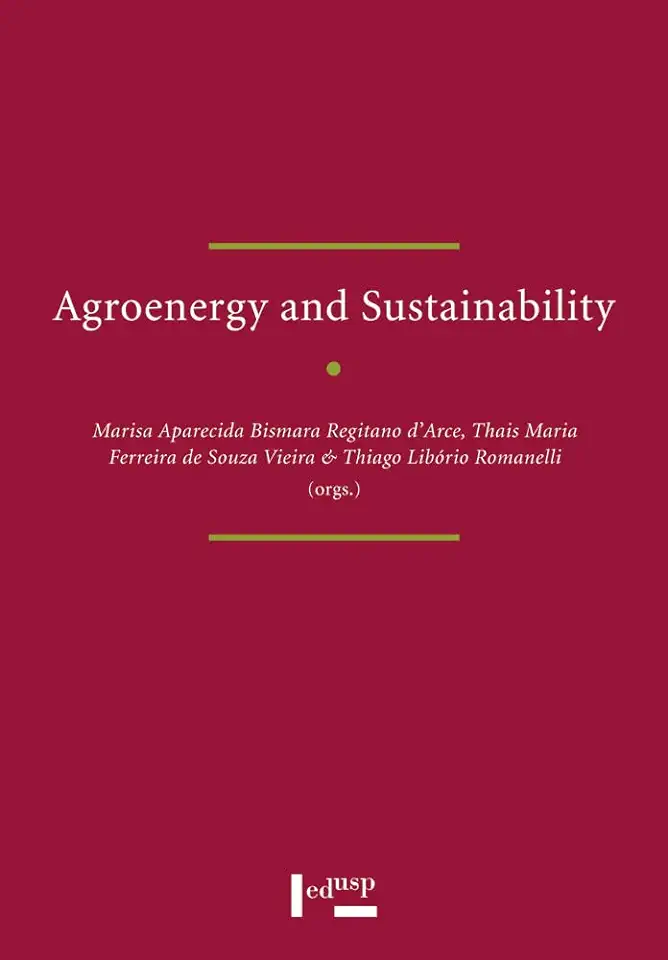
Agroenergy and Sustainability
Agroenergy and Sustainability: A Comprehensive Overview
In today's world, the demand for energy is constantly increasing, driven by population growth, economic development, and technological advancements. However, our reliance on fossil fuels has led to severe environmental consequences, including climate change, air pollution, and biodiversity loss. Agroenergy, the production of energy from agricultural crops and residues, offers a promising alternative to fossil fuels. This book provides a comprehensive overview of agroenergy, exploring its potential benefits, challenges, and sustainability implications.
Benefits of Agroenergy
Agroenergy offers several significant benefits that make it an attractive option for sustainable energy production.
Renewable and Sustainable
Agroenergy is derived from plant biomass, which is a renewable resource that can be replenished through sustainable agricultural practices. Unlike fossil fuels, which are finite and non-renewable, agroenergy can provide a continuous source of energy without depleting natural resources.
Greenhouse Gas Mitigation
Agroenergy has the potential to mitigate greenhouse gas emissions by replacing fossil fuels. When crops are grown and harvested, they absorb carbon dioxide from the atmosphere through photosynthesis. When these crops are used for energy production, the carbon stored in the plant material is released back into the atmosphere. However, since the crops have already absorbed an equivalent amount of carbon during their growth, the net carbon emissions are close to zero. This carbon-neutral cycle makes agroenergy a promising tool for combating climate change.
Reduced Air Pollution
Agroenergy can also help reduce air pollution caused by fossil fuels. Burning fossil fuels releases harmful pollutants such as sulfur dioxide, nitrogen oxides, and particulate matter into the atmosphere. These pollutants contribute to respiratory illnesses, smog, and acid rain. Agroenergy, on the other hand, produces significantly lower levels of these pollutants, resulting in cleaner air and improved public health.
Energy Independence and Rural Development
Agroenergy can enhance energy independence by reducing reliance on imported fossil fuels. By producing energy from domestic agricultural resources, countries can reduce their dependence on foreign oil and gas, increasing their energy security. Additionally, agroenergy can promote rural development by creating jobs and economic opportunities in agricultural communities.
Challenges and Sustainability Considerations
While agroenergy offers numerous benefits, it also faces several challenges and sustainability concerns that need to be addressed.
Land Use and Food Security
One of the primary concerns associated with agroenergy is its potential impact on land use and food security. Converting land for energy crop production may compete with food production, leading to higher food prices and reduced food availability. Sustainable agroenergy systems must prioritize efficient land use and minimize the diversion of land from food production.
Water Use and Conservation
Agroenergy production can be water-intensive, particularly for certain crops such as sugarcane and corn. In regions where water resources are scarce, agroenergy development must be carefully managed to avoid water depletion and ensure water availability for other essential purposes.
Biodiversity and Ecosystem Impacts
Agroenergy expansion can have negative impacts on biodiversity and ecosystems. Monoculture plantations for energy crops can reduce habitat diversity and displace native species. Sustainable agroenergy practices should incorporate measures to minimize these impacts and promote biodiversity conservation.
Conclusion
Agroenergy has the potential to play a significant role in achieving a sustainable energy future. Its renewable nature, greenhouse gas mitigation potential, and positive contributions to air quality and rural development make it an attractive alternative to fossil fuels. However, careful planning and sustainable practices are essential to address the challenges and concerns associated with agroenergy production. By balancing energy needs with environmental protection and social considerations, we can harness the benefits of agroenergy while ensuring long-term sustainability.
Call-to-Action
If you are interested in learning more about agroenergy and its potential for sustainable energy production, this book is a must-read. With its comprehensive coverage of benefits, challenges, and sustainability considerations, this book provides valuable insights for policymakers, researchers, industry professionals, and anyone interested in the future of energy. Order your copy today and explore the exciting world of agroenergy!
Enjoyed the summary? Discover all the details and take your reading to the next level — [click here to view the book on Amazon!]